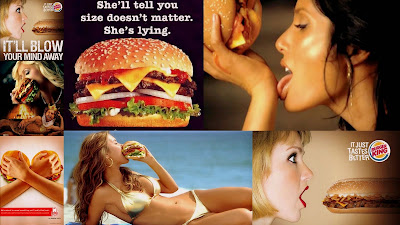‘Healthy’ products filled to the
brim with artificial sugars, ‘health’ claims that aren’t actually true, and ‘natural’ products that aren’t quite that
natural to begin with… There certainly is no lack of unjust claims that are
made marketing products, with the goal of making a profit. Not okay in retail
express, but still used relentlessly for food marketing.
Members of the center for social and cultural psychology at the Université Libre de Bruxelles share a few thoughts on the world outside the lab/ Quelques réflexions sur le monde proposées par les membres du centre de psychologie sociale et interculturelle de l'Université Libre de Bruxelles.
Showing posts with label marketing. Show all posts
Showing posts with label marketing. Show all posts
Wednesday, July 19, 2017
Wednesday, November 9, 2016
Getting the balance right
“Pick me!” “No, pick me!” – When walking through a
supermarket, all the products seem to be fighting for your attention, and not a
marketing trick is left unused in order to try and get you to buy the product. Oftentimes,
these marketing strategies are applied to rather unhealthy (ultra-) transformed products, rather than for healthy foods. And then there's also all the information (especially online) about fad diets, and superfoods. So what should we choose, and what is
healthy or not?
Friday, May 20, 2016
Knowing your foods – Natural vs. Organic
Imagine you’re shopping for some groceries. Most products have very appealing packaging, in order to try and persuade you to buy the goods (in favour of their competition). Some of these foods have food claims in order to inform you about their benefits. When strolling through the supermarket, you come across
a new applesauce brand, and are eager to try it. There are 2 jars that you can choose from: one with an “organic” label
on it, whereas the other one says “natural”. What jar would you choose?
 |
| Food Claims |
Did you pick the “natural” applesauce
jar? If you did, then you’re like the majority of consumers. But why did you make that choice? Does it sound better? And is it this really a better choice?
Do you know what these claims really mean?
Friday, May 22, 2015
Food advertisements: do they make you feel hungry, sexy or greedy?
Sex sells, we all know that. Marketing strategists have been using sexually arousing images and messages in advertisements for over decades, most likely having found its roots on tobacco packages in 1885. Food ads often contain sexual elements. Frequently, these ads promote fast foods, such as the ad by Burger King in 2014, but sometimes also healthy products such as the ad for Coca Cola’s new milk Fairlife (2014). Sexual elements are used in advertisements because they are believed to catch our attention and make us feel positive towards the advertised brand. More importantly, they increase our arousal and thereby motivate us to obtain the advertised product (Reichter, 2002).
 |
|
Source: http://articulateyouth.blogspot.be/2014/12/if-you-pitch-it-they-will-eat-it.html
|
Subscribe to:
Posts (Atom)

